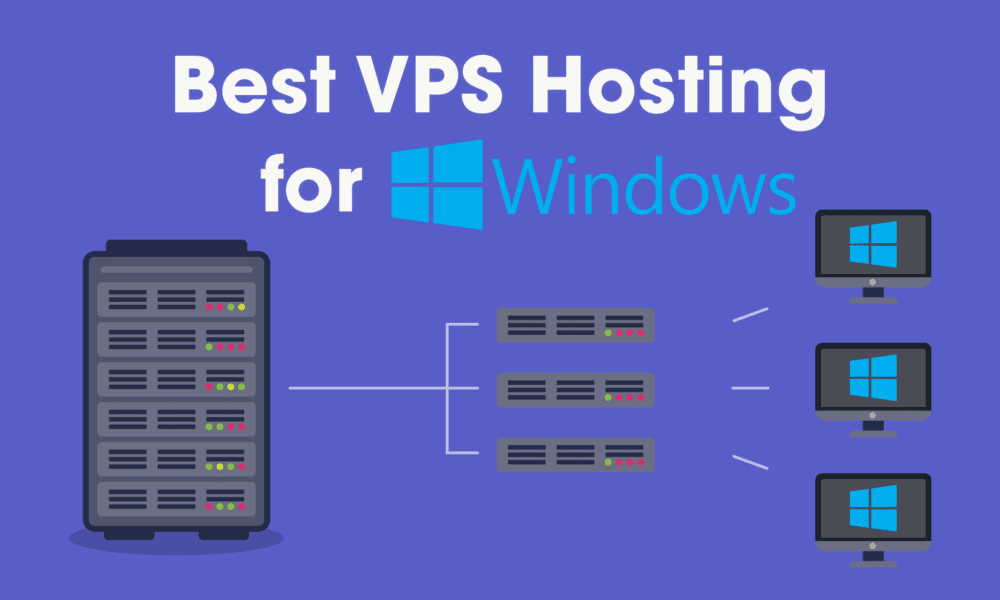Cheap dedicated server hosting offers a compelling alternative to shared and VPS hosting, providing businesses and individuals with dedicated resources for enhanced performance, security, and control.
By offering exclusive access to a physical server, cheap dedicated server hosting empowers users with the flexibility to tailor their environment to meet specific needs, whether it’s running resource-intensive applications, managing high traffic websites, or ensuring data privacy. This approach not only boosts performance and security but also presents potential cost savings compared to other hosting options.
What is Cheap Dedicated Server Hosting?
In the realm of web hosting, dedicated server hosting stands out as a powerful option for websites and applications demanding high performance, security, and control. Unlike shared hosting, where multiple websites share the same server resources, a dedicated server provides exclusive access to a physical server, guaranteeing dedicated resources and enhanced performance. This translates to greater speed, reliability, and the ability to manage your server environment according to your specific needs.
Comparison with Shared and VPS Hosting
Dedicated server hosting offers distinct advantages over shared hosting and VPS hosting. Shared hosting is the most affordable option, but it comes with limitations. Multiple websites share the same server resources, leading to potential performance bottlenecks and security risks. VPS hosting, on the other hand, provides a virtualized server environment with dedicated resources, offering better performance than shared hosting. However, VPS hosting still shares the underlying physical server with other virtual servers, which can impact performance.
- Shared Hosting: Multiple websites share the same server resources, resulting in potential performance limitations and security vulnerabilities. It’s the most affordable option, but it may not be suitable for high-traffic websites or applications requiring dedicated resources.
- VPS Hosting: Provides a virtualized server environment with dedicated resources, offering better performance than shared hosting. However, it still shares the underlying physical server with other virtual servers, which can impact performance.
- Dedicated Server Hosting: Offers exclusive access to a physical server, guaranteeing dedicated resources and enhanced performance. It’s the most expensive option, but it provides the highest level of control, security, and performance.
Use Cases for Cheap Dedicated Server Hosting
Cheap dedicated server hosting is an attractive option for various use cases, particularly for businesses and individuals seeking high performance, security, and control at a budget-friendly price.
- High-Traffic Websites: Websites with a large number of visitors can benefit from the dedicated resources and performance of a cheap dedicated server. This ensures smooth operation and prevents slow loading times, enhancing user experience.
- E-commerce Platforms: E-commerce websites require secure and reliable hosting to process transactions and manage sensitive customer data. A dedicated server provides a secure and robust environment for online stores.
- Gaming Servers: Dedicated servers are essential for hosting online games, as they provide the dedicated resources and low latency required for a smooth and enjoyable gaming experience.
- Development and Testing Environments: Developers and testers can use cheap dedicated servers to create secure and isolated environments for building and testing applications. This allows for efficient development and debugging processes.
- Content Management Systems (CMS): Websites running on CMS platforms like WordPress or Drupal can benefit from the dedicated resources and performance of a cheap dedicated server, especially if they handle a large volume of content or traffic.
Benefits of Cheap Dedicated Server Hosting
Cheap dedicated server hosting offers a range of advantages for businesses and individuals seeking reliable, high-performance web hosting solutions. Unlike shared hosting, where resources are shared with multiple websites, a dedicated server provides exclusive access to the server’s resources, ensuring optimal performance and security.
Increased Performance
A dedicated server offers significant performance benefits, especially for websites with high traffic or resource-intensive applications. The dedicated resources, including CPU, RAM, and storage, are not shared with other users, resulting in faster loading times, reduced latency, and improved user experience. This is particularly important for e-commerce websites, gaming platforms, and other applications that require fast and responsive performance.
Enhanced Security
Dedicated servers provide a higher level of security compared to shared hosting. Since the server is not shared with other users, the risk of security breaches is minimized. This is because malicious attacks targeting one website on a shared server can potentially compromise other websites on the same server. A dedicated server offers complete control over security settings, allowing you to implement robust security measures tailored to your specific needs.
Complete Control
With a dedicated server, you have complete control over the server’s environment. This includes the operating system, software applications, and security settings. You can customize the server to meet your specific requirements, ensuring optimal performance and security for your website. This level of control is not available with shared hosting, where you are limited by the hosting provider’s settings.
Cost Savings
While dedicated servers can be more expensive than shared hosting, cheap dedicated server hosting options can provide significant cost savings compared to other hosting options. For example, a dedicated server can be more cost-effective than renting multiple virtual private servers (VPS) to handle high traffic or resource-intensive applications. Additionally, the increased performance and security offered by a dedicated server can lead to increased revenue and reduced downtime, further offsetting the initial cost.
Scalability
Dedicated servers offer excellent scalability, allowing you to easily adjust your resources as your needs change. You can upgrade your server’s hardware, add more storage, or increase RAM to accommodate growing traffic or resource demands. This flexibility ensures that your website can handle increasing traffic without compromising performance or security.
Factors to Consider When Choosing Cheap Dedicated Server Hosting
Choosing a cheap dedicated server provider can be a daunting task, especially with the plethora of options available. To make an informed decision, it’s essential to consider several key factors beyond just the price tag. These factors will help you choose a provider that aligns with your specific needs and budget.
Server Specifications
The specifications of a dedicated server are crucial for determining its performance and suitability for your applications.
- CPU: The CPU determines the processing power of the server. For demanding applications, consider a server with a higher core count and clock speed. Look for servers with Intel Xeon or AMD Ryzen processors for optimal performance.
- RAM: RAM is essential for multitasking and running multiple applications simultaneously. The amount of RAM required depends on your specific workload. For web hosting, a minimum of 8 GB is recommended, while for more resource-intensive tasks, you may need 16 GB or more.
- Storage: Storage space is crucial for storing your data, operating system, and applications. Consider the type of storage, such as SSD or HDD, and the amount of storage space required. SSD offers faster read/write speeds, making it ideal for applications that require quick data access.
- Bandwidth: Bandwidth refers to the amount of data that can be transferred to and from your server. Choose a server with sufficient bandwidth to accommodate your website traffic and application usage.
Server Location
The physical location of the server can impact latency and performance, especially for websites targeting a specific geographic region.
- Latency: Latency refers to the delay in data transmission between your server and users. A server located closer to your target audience will result in lower latency and faster website loading times.
- Data Sovereignty: Some regions have specific data sovereignty regulations, which may require data to be stored within their borders. Consider these regulations if your website or application handles sensitive data.
Support Options
Reliable support is essential for any dedicated server hosting provider. Consider the following support options:
- Availability: Ensure the provider offers 24/7 support via phone, email, or live chat.
- Response Time: Check the provider’s average response time for support requests. Look for providers with a quick response time, ideally within minutes.
- Technical Expertise: Ensure the provider has experienced and knowledgeable technical staff who can assist with server administration, troubleshooting, and other technical issues.
Pricing Models
Dedicated server hosting providers offer different pricing models, each with its own advantages and disadvantages.
- Fixed Monthly Fee: This model offers a predictable monthly cost, making it easy to budget for server hosting. However, you may be limited in terms of server upgrades or changes.
- Pay-as-You-Go: This model allows you to pay only for the resources you use, which can be cost-effective for short-term projects or when you need to scale your server resources up or down. However, it can be more difficult to predict your monthly expenses.
- Contractual Agreements: Some providers offer discounted rates for longer-term contracts. This can be a good option if you need predictable costs for a longer period. However, it can be challenging to change providers if your needs change.
Provider Reputation and Reliability
Before choosing a cheap dedicated server provider, it’s essential to research their reputation and reliability.
- Customer Reviews: Read reviews from other customers to get an idea of the provider’s performance, reliability, and customer service.
- Uptime Guarantee: Look for a provider that offers a high uptime guarantee, ideally 99.9% or higher. This indicates the provider’s commitment to providing reliable and consistent server performance.
- Security Measures: Ensure the provider implements robust security measures, such as firewalls, intrusion detection systems, and regular security audits, to protect your data and applications from cyber threats.
How to Find Affordable Dedicated Server Hosting

Finding a cheap dedicated server hosting solution doesn’t have to be a daunting task. By following a strategic approach, you can secure a reliable and affordable server that meets your specific needs.
Reputable Providers Offering Cheap Dedicated Server Hosting
Choosing a provider with a solid reputation for offering affordable dedicated server hosting is crucial. This ensures you get a balance of cost-effectiveness and quality.
- HostGator: HostGator offers a range of dedicated server options at competitive prices, making it a popular choice for businesses and individuals seeking affordable solutions.
- GoDaddy: While known for its domain registration services, GoDaddy also provides affordable dedicated server hosting options with varying specifications and pricing plans.
- Bluehost: Bluehost is a well-established hosting provider that offers a range of dedicated server packages, including budget-friendly options.
- A2 Hosting: A2 Hosting is known for its high-performance dedicated servers, with affordable options catering to different needs and budgets.
- Liquid Web: Liquid Web focuses on providing premium dedicated server hosting, but also offers affordable options for those seeking a balance of cost and quality.
A Step-by-Step Guide for Finding the Best Deals on Dedicated Servers
Finding the best deals on dedicated servers requires a systematic approach. Here’s a step-by-step guide to help you navigate the process:
- Define your needs: Before embarking on your search, clearly define your website’s requirements. Consider factors like traffic volume, storage needs, and required processing power. This will help you narrow down your options and avoid overpaying for features you don’t need.
- Compare providers: Once you have a clear understanding of your needs, research and compare different hosting providers. Look for providers offering dedicated servers that align with your requirements and budget.
- Check server specifications: Pay close attention to the server specifications offered by each provider. Look for details like CPU cores, RAM capacity, storage space, and network bandwidth. These specifications directly impact your website’s performance and capacity.
- Evaluate pricing and features: Compare the pricing plans and features offered by different providers. Consider factors like monthly fees, contract terms, and included features like backups, security, and support. Choose a plan that provides the best value for your money.
- Read reviews and testimonials: Before making a final decision, read reviews and testimonials from existing customers. This can provide valuable insights into a provider’s reliability, customer support, and overall performance.
- Look for discounts and promotions: Many hosting providers offer discounts and promotions, especially for new customers. Keep an eye out for special deals and sign up for email newsletters to stay informed about promotions.
Comparing Features and Pricing of Different Providers
To provide a comprehensive comparison, here’s a table showcasing the features and pricing of some popular dedicated server hosting providers:
| Provider Name | Server Specifications (CPU, RAM, Storage) | Monthly Price | Location | Support Options |
|---|---|---|---|---|
| HostGator | 2x Intel Xeon E5-2620 v4 (8 Cores, 16 Threads), 32GB RAM, 2x 1TB SATA HDD | $149/month | US, Europe | 24/7 phone, email, and live chat support |
| GoDaddy | 2x Intel Xeon E5-2620 v4 (8 Cores, 16 Threads), 32GB RAM, 2x 1TB SATA HDD | $159/month | US, Europe, Asia | 24/7 phone, email, and live chat support |
| Bluehost | 2x Intel Xeon E5-2620 v4 (8 Cores, 16 Threads), 32GB RAM, 2x 1TB SATA HDD | $169/month | US, Europe | 24/7 phone, email, and live chat support |
| A2 Hosting | 2x Intel Xeon E5-2620 v4 (8 Cores, 16 Threads), 32GB RAM, 2x 1TB SATA HDD | $179/month | US, Europe, Asia | 24/7 phone, email, and live chat support |
| Liquid Web | 2x Intel Xeon E5-2620 v4 (8 Cores, 16 Threads), 32GB RAM, 2x 1TB SATA HDD | $199/month | US, Europe | 24/7 phone, email, and live chat support |
Managing a Cheap Dedicated Server
Managing a dedicated server, even a cheap one, requires understanding the fundamental steps involved in setting it up, configuring it, and maintaining its functionality. This includes tasks like installing operating systems, configuring software, and ensuring security. While managing a dedicated server may seem daunting at first, it becomes more manageable with the right knowledge and tools.
Setting Up and Configuring a Dedicated Server
Setting up and configuring a dedicated server involves several steps, starting with the initial setup and progressing to installing and configuring the operating system and software.
- Initial Setup: This involves connecting to the server via SSH (Secure Shell) using a client like PuTTY or Terminal. The server’s IP address and login credentials are provided by the hosting provider.
- Operating System Installation: The next step is installing the desired operating system (OS). Popular choices include Linux distributions like Ubuntu, CentOS, or Debian. The installation process typically involves booting from a bootable media (e.g., USB drive) and following the on-screen instructions.
- Server Configuration: After installing the OS, the server needs to be configured. This includes setting up the network, configuring the firewall, and managing user accounts.
- Software Installation: Depending on the server’s purpose, various software needs to be installed. This could include web servers (Apache, Nginx), databases (MySQL, PostgreSQL), programming languages (PHP, Python), and other applications.
Common Server Management Tasks
Once the server is set up, several ongoing management tasks are essential for ensuring optimal performance and security.
- Security Updates: Regularly updating the operating system and software is crucial for patching vulnerabilities and preventing security breaches.
- Monitoring: Monitoring server performance metrics like CPU usage, memory consumption, and disk space is vital for identifying potential issues and optimizing resource allocation.
- Backup and Recovery: Regularly backing up server data is essential to prevent data loss due to hardware failures or accidental deletions. A robust backup and recovery plan ensures data can be restored quickly and efficiently.
- Troubleshooting: Identifying and resolving issues that arise on the server is an ongoing task. This may involve checking logs, analyzing performance metrics, and researching solutions to specific problems.
Tools and Resources for Managing a Dedicated Server
Several tools and resources can assist in managing a dedicated server effectively.
- SSH Clients: PuTTY (Windows) and Terminal (macOS/Linux) are popular SSH clients used for connecting to and managing servers remotely.
- Control Panels: cPanel and Plesk are popular control panels that provide a user-friendly interface for managing server tasks like creating websites, managing databases, and installing software.
- Monitoring Tools: Tools like Nagios, Zabbix, and Prometheus can monitor server performance and alert administrators to potential issues.
- Documentation and Forums: Online resources like the official documentation for the operating system and software used on the server, as well as community forums and support groups, provide valuable information and troubleshooting guidance.
Potential Challenges with Cheap Dedicated Server Hosting
While cheap dedicated servers offer attractive pricing, it’s essential to acknowledge potential drawbacks. These servers often come with limitations that might impact performance, reliability, and overall user experience.
Limited Resources
Cheap dedicated servers are typically configured with fewer resources compared to their more expensive counterparts. This can include reduced RAM, storage space, and processing power. These limitations can affect the performance of applications and websites hosted on the server, particularly during peak traffic hours.
Technical Support
The level of technical support provided with cheap dedicated servers can vary significantly. Some providers offer limited support, while others may have 24/7 availability. It’s crucial to investigate the support options offered by a provider before making a decision. Inadequate support can lead to extended downtime and difficulty resolving technical issues.
Performance Issues
Cheap dedicated servers may experience performance issues due to limited resources, shared infrastructure, or network congestion. These issues can manifest as slow loading times, website crashes, and reduced responsiveness. Performance bottlenecks can impact user experience and negatively affect website .
Security Risks
Cheap dedicated servers might have less robust security features compared to more expensive options. This could increase the risk of security breaches, malware infections, and data loss. It’s crucial to implement strong security measures and regularly update software to mitigate these risks.
Scalability Limitations
Cheap dedicated servers often have limited scalability options. This can make it challenging to upgrade resources or expand capacity as your website or application grows. Limited scalability can lead to performance bottlenecks and hinder future growth.
Hidden Costs
While the initial cost of a cheap dedicated server might be attractive, there could be hidden costs associated with the service. These can include fees for additional features, bandwidth usage, or technical support. It’s essential to thoroughly review the pricing structure and identify any potential hidden costs.
Limited Flexibility
Cheap dedicated servers often come with pre-configured specifications that may not be ideal for all applications. This lack of flexibility can limit your ability to customize the server’s configuration to meet specific needs.
Vendor Reliability
The reliability of cheap dedicated server providers can vary significantly. Some providers may have a history of outages, slow response times, or poor customer service. It’s crucial to research the provider’s reputation and track record before making a decision.
Mitigating Challenges
Despite these potential challenges, cheap dedicated servers can still be a viable option for certain applications. Here are some strategies for mitigating these challenges and maximizing the value of a cheap dedicated server:
Thorough Research
Before purchasing a cheap dedicated server, it’s essential to conduct thorough research on different providers and their offerings. Compare features, pricing, support options, and customer reviews to identify the best value for your needs.
Realistic Expectations
Set realistic expectations regarding the performance and capabilities of a cheap dedicated server. Avoid over-burdening the server with resource-intensive applications or high traffic volumes.
Optimize Website or Application
Optimize your website or application for performance to reduce the strain on the server. This can include optimizing images, minimizing code, and caching frequently accessed data.
Implement Strong Security Measures
Implement robust security measures to protect your server from attacks. This can include using strong passwords, enabling two-factor authentication, and regularly updating software.
Monitor Server Performance
Regularly monitor server performance to identify any potential bottlenecks or issues. This can help you proactively address problems and ensure optimal performance.
Consider Managed Hosting
For users with limited technical expertise, managed hosting can be a valuable option. Managed hosting providers handle server management tasks, including security, updates, and backups.
Backup Data Regularly
Regularly backup your server data to protect against data loss. This can include using off-site backups or cloud storage solutions.
Evaluate Growth Potential
Consider the potential growth of your website or application and choose a server that can accommodate future expansion. If you anticipate significant growth, a more expensive dedicated server with greater scalability might be a better long-term investment.
Alternative Options to Cheap Dedicated Server Hosting
While cheap dedicated server hosting can be attractive for its affordability, it’s essential to consider alternative options that might be more suitable for your needs and budget. These alternatives often offer a balance of performance and cost-effectiveness, making them viable choices for various website and application hosting scenarios.
VPS Hosting: A Scalable and Affordable Choice
VPS hosting provides a virtualized server environment, offering a dedicated portion of a physical server’s resources. This approach provides more control and flexibility than shared hosting while remaining more affordable than a dedicated server.
Advantages of VPS Hosting
- Cost-effectiveness: VPS hosting is generally more affordable than dedicated server hosting, making it an attractive option for businesses with limited budgets.
- Improved performance: Compared to shared hosting, VPS hosting offers better performance due to dedicated resources and fewer shared users.
- Increased control and flexibility: VPS hosting provides root access, allowing you to customize your server environment and install specific software.
- Scalability: VPS hosting allows you to easily scale your resources as your website or application traffic grows.
Disadvantages of VPS Hosting
- Shared resources: While VPS hosting provides dedicated resources, you’re still sharing the underlying physical server with other users, which can potentially affect performance.
- Limited customization: Compared to dedicated servers, VPS hosting offers less customization and control over the underlying hardware.
Examples of VPS Hosting Providers
- DigitalOcean: Offers affordable VPS hosting plans with a user-friendly interface and excellent performance.
- Linode: Provides a range of VPS plans with competitive pricing and a focus on reliability.
- Vultr: Known for its high-performance VPS plans and a wide selection of server locations.
Cloud Server Hosting: Flexibility and Scalability
Cloud server hosting, also known as Infrastructure as a Service (IaaS), allows you to rent virtual servers from a cloud provider. This approach offers unparalleled flexibility and scalability, making it suitable for dynamic workloads and unpredictable traffic patterns.
Advantages of Cloud Server Hosting
- Scalability: Cloud server hosting provides on-demand scalability, allowing you to adjust your resources as needed without any hardware limitations.
- Flexibility: Cloud server hosting offers a wide range of server configurations, operating systems, and software options.
- High availability: Cloud providers typically offer high availability and redundancy, ensuring your website or application remains online even during outages.
- Cost-effectiveness: Cloud server hosting can be cost-effective, especially for businesses with fluctuating traffic or unpredictable resource demands.
Disadvantages of Cloud Server Hosting
- Potential cost fluctuations: Cloud server hosting costs can fluctuate depending on your usage and resource consumption.
- Complexity: Managing cloud server environments can be more complex than traditional hosting solutions.
Examples of Cloud Server Hosting Providers
- Amazon Web Services (AWS): Offers a wide range of cloud services, including EC2 instances for virtual server hosting.
- Microsoft Azure: Provides a comprehensive cloud platform with various server options and services.
- Google Cloud Platform (GCP): Offers a powerful cloud infrastructure with competitive pricing and a focus on innovation.
Case Studies
Cheap dedicated server hosting, while offering cost-effective solutions, has proven to be a viable option for a range of businesses and individuals. Numerous real-world examples showcase the success of utilizing these servers to achieve diverse goals, demonstrating the effectiveness of this approach.
A Small E-commerce Startup
A budding online retailer, specializing in handcrafted goods, opted for a cheap dedicated server to host their e-commerce platform. The dedicated server provided the necessary resources for handling the increasing traffic and data storage demands, enabling them to scale their business efficiently. The cost-effectiveness of the server allowed them to reinvest saved funds into marketing and product development, ultimately contributing to their growth and expansion.
Cheap dedicated server hosting offers you the power and control you need, but managing user access can be a challenge. This is where a radius server comes in handy. It centralizes authentication and authorization, allowing you to easily manage user accounts and permissions across your entire server infrastructure, freeing you to focus on what matters most – your business.
A Gaming Community
A passionate group of gamers sought a reliable and affordable solution to host their online gaming server. Choosing a cheap dedicated server provided them with the dedicated resources and performance required to handle the demands of their community, ensuring smooth gameplay and a positive user experience. The cost-effectiveness of the server allowed them to allocate more resources towards server upgrades and community initiatives, fostering a thriving and active gaming community.
A Web Developer
A freelance web developer required a reliable and secure environment to host their clients’ websites. Opting for a cheap dedicated server provided them with the necessary control and security, ensuring the smooth operation and integrity of their clients’ websites. The server’s cost-effectiveness allowed them to offer competitive pricing to their clients, contributing to their success and growth in the web development industry.
Future Trends in Cheap Dedicated Server Hosting
The dedicated server hosting market is constantly evolving, driven by advancements in hardware, software, and cloud computing technologies. These advancements are shaping the future of cheap dedicated server hosting, making it more accessible and cost-effective than ever before.
Advancements in Hardware, Cheap dedicated server hosting
The rapid evolution of hardware technology is a key driver of affordability in dedicated server hosting. Advancements in processor speeds, memory capacity, and storage technologies are leading to increased performance and efficiency at lower costs.
- Next-Generation Processors: Modern processors, like Intel’s latest Xeon Scalable processors and AMD’s EPYC series, offer significant performance improvements over previous generations. These advancements allow for more powerful servers to be built with lower power consumption, resulting in lower operating costs for hosting providers, which can translate to more affordable pricing for customers.
- Solid-State Drives (SSDs): SSDs have become the standard for dedicated servers, replacing traditional hard disk drives (HDDs). SSDs offer significantly faster read and write speeds, resulting in improved application performance and faster website loading times. The decreasing cost of SSDs has made them a more affordable option for hosting providers, contributing to the overall affordability of dedicated server hosting.
- Cloud-Based Infrastructure: Cloud computing platforms are increasingly being used for dedicated server hosting. This allows hosting providers to leverage economies of scale, offering more affordable options to customers. Cloud-based dedicated servers can be scaled up or down as needed, providing flexibility and cost savings for businesses.
Advancements in Software
Software advancements are also contributing to the affordability of dedicated server hosting. Open-source operating systems like Linux and virtualization technologies like KVM and Xen are becoming more efficient and feature-rich, allowing for better resource utilization and lower operating costs.
- Containerization: Containerization technologies, such as Docker and Kubernetes, are gaining popularity in the dedicated server hosting market. Containers allow for the efficient packaging and deployment of applications, enabling hosting providers to offer more flexible and cost-effective solutions. This technology allows multiple applications to run on a single server, maximizing resource utilization and reducing costs.
- Serverless Computing: Serverless computing platforms, like AWS Lambda and Google Cloud Functions, are gaining traction. These platforms allow developers to run code without managing servers, reducing the cost and complexity of hosting applications. While not directly related to traditional dedicated server hosting, serverless computing offers a cost-effective alternative for certain workloads, potentially influencing the dedicated server hosting market.
Impact on Affordability and Availability
The advancements in hardware and software are driving down the cost of dedicated server hosting, making it more accessible to businesses and individuals. The increased efficiency and resource utilization offered by these technologies enable hosting providers to offer more affordable plans without compromising performance. This trend is expected to continue in the future, with even more affordable and powerful dedicated server hosting options becoming available.
Opportunities for Businesses and Individuals
The future trends in cheap dedicated server hosting present numerous opportunities for businesses and individuals.
- Cost Savings: Businesses can leverage the affordability of dedicated server hosting to reduce their IT infrastructure costs. This allows them to invest more in other areas of their business, such as marketing and product development.
- Increased Performance: The advancements in hardware and software are leading to more powerful and efficient dedicated servers, resulting in improved application performance and faster website loading times. This can lead to increased customer satisfaction and conversions.
- Scalability and Flexibility: Cloud-based dedicated server hosting offers businesses the ability to scale their infrastructure up or down as needed, providing flexibility and cost savings. This is particularly beneficial for businesses with fluctuating workloads or seasonal demands.
Closing Summary
Navigating the world of cheap dedicated server hosting requires careful consideration of factors like server specifications, location, and support options. By researching reputable providers, understanding pricing models, and mastering basic server management, you can unlock the potential of affordable dedicated servers to enhance your online presence and achieve your digital goals. Whether you’re a small business looking to scale up or an individual seeking greater control over your online environment, cheap dedicated server hosting presents a compelling option for those seeking cost-effective, high-performance solutions.




